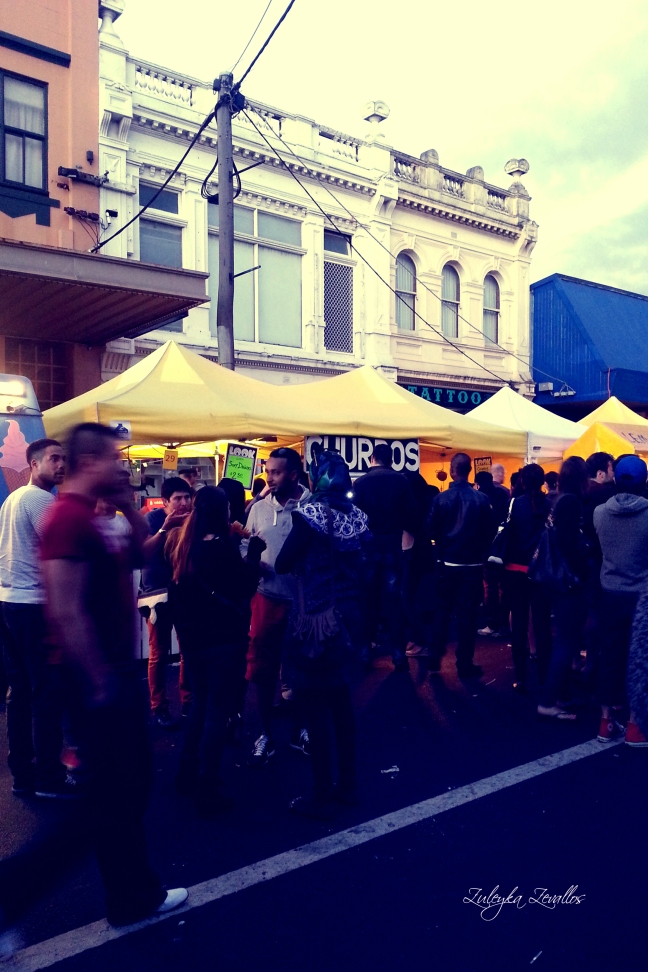Co-authored by Lauren Tolsma and Zuleyka Zevallos
This report was first published in 2009 by the Swinburne Institute for Social Research. I republish the summary and one of the findings chapter. The study can be read free and in its entirety via the link below.
Summary
This report provides a sociological analysis of the settlement and support services available to Muslim migrants living in the suburbs of Greater Adelaide, in the state of South Australia. In particular, we seek to learn how existing Muslim organisations address the collective needs of Muslim migrants in Adelaide. We present a critical analysis of the literature on community development with specific focus on the provision of services that aid economic development.
Broadly, we use the term ‘community development’ to refer to the process of organising, educating and encouraging the participation and collaboration of local residents and stakeholders in order to improve their collective outcomes and objectives. Stakeholders might include practitioners who work in the social welfare sector, community leaders, businesses and government agencies who work with Muslim communities. These stakeholders are able to provide funds, or exchange their skills, services, prestige or other forms of support in order to achieve social change. As a pilot case study of community development, we incorporate previously unpublished data on South Australian Muslim community organisations. This includes interviews with service providers, representatives and religious leaders, as well as field notes during visits to organisations and the public events that these groups hosted around Adelaide in 2008.
Our report considers different forms of social capital in relation to Muslim community development and service provision. Social capital refers to the norms, knowledge and status enacted by social actors through their participation in social networks in order to become more socially mobile, particularly by tapping into the resources and capacities of other groups who are better off. This concept is used to examine the power dynamics in negotiations of social and economic exchange among different Muslim organisations and other groups, including mainstream service providers and government officials.

Our study finds that many newly arrived Muslim migrants do not understand the breadth of government-sponsored services available to them, and so they largely rely on a couple of the smaller and widely trusted Muslim community organisations for all of their needs, rather than approaching mainstream organisations for specialised services. In this connection, because some Muslim organisations have stronger visibility among new arrivals, some groups are struggling to manage their members’ requirements, especially given their limited resources. Consequently, a small number of over-worked volunteers deliver targeted assistance for which they have no formal training or qualifications. This includes crisis counselling, occupational assistance and educational advice.
We suggest that an asset-based community development (ABCD) approach would strengthen the social network ties and resources both within and external to the Muslim organisations studied. The ABCD framework is an evaluation methodology which first identifies the social and material capacities that presently exist within particular organisations. This information is used to establish practical ways in which those resources might be used to enhance their service delivery. In order to mobilise the existing assets of Muslim organisations around South Australia, the report proposes the establishment of a South Australian Muslim Community Corporation (SAMCC) which would consist of Muslim community service providers, volunteers and their Muslim clients from around South Australia. We propose a number of recommendations regarding the SAMCC including:
- Assisting equitable decision making among Muslim organisations via the SAMCC.
- Rather than solely privileging religious leaders, the SAMCC is set up to encourage the inclusion of a broader range of Muslim ‘voices’ that would contribute to community development activities;
- Recruiting a SAMCC media liaison to help disseminate important information via a multi-lingual, regularly updated Muslim community newsletter and website. This includes promoting non-Muslim participation in community events, focusing on secular activities, and making available a list of culturally sensitive, mainstream service providers to Muslim community groups;
- Restructuring the existing grants scheme of community funding. This is with a view to supporting the long-term self-sustainability of a wider range of ‘grassroots’ Muslim community organisations;
- Funding training and hiring professional staff. This would ease the burden of Muslim organisations that are widely used and trusted but currently overextended, while still allowing them to continue providing specialised services for Muslim migrants.
The idea of the SAMCC is to provide sustainability for the Muslim community groups currently in operation, by pooling together and taking better advantage of their existing resources. In this way, it complements the asset-based approach to community development, by mobilising existing social networks and the value that those networks have for ordinary Muslims living in South Australia.
The next section presents our findings from Chapter 5 of our report.






